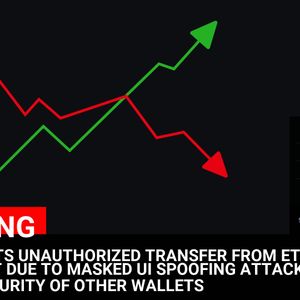Exciting news for Bitcoin enthusiasts! Montana is on the cusp of a potentially groundbreaking move in the world of cryptocurrency. The U.S. state is advancing legislation that could see it establish a strategic Bitcoin reserve. Imagine a state government holding Bitcoin – it’s a concept that’s gaining traction, and Montana is leading the charge. Let’s dive into what this means, why it’s significant, and what could happen next. What’s Happening in Montana with Bitcoin? As reported by the Satoshi Action Fund, a non-profit dedicated to Bitcoin advocacy, Montana’s Bitcoin reserve legislation has successfully navigated the committee stage and is now headed for a crucial House floor vote. This is a major step forward for a bill that could position Montana as a pioneer in state-level Bitcoin adoption. The implications of this legislation are far-reaching, potentially setting a precedent for other states and even national governments to consider integrating Bitcoin into their financial strategies. But what exactly does ‘strategic Bitcoin reserve legislation’ entail? It suggests that Montana is exploring the possibility of holding Bitcoin as part of its state treasury reserves, similar to how states hold gold or foreign currencies. This isn’t just about acknowledging Bitcoin; it’s about potentially incorporating it into the state’s financial framework. Why is Montana Considering Bitcoin Adoption? The question on everyone’s mind is: why Montana? Several factors could be driving this initiative towards Bitcoin adoption : Diversification: States traditionally hold reserves in assets like government bonds. Bitcoin, being a decentralized and uncorrelated asset, could offer diversification benefits, potentially reducing risk and enhancing returns over the long term. Future-Proofing Finances: With growing concerns about inflation and the devaluation of fiat currencies, some see Bitcoin as a hedge against these economic uncertainties. Holding Bitcoin could be viewed as a forward-thinking approach to safeguarding state funds. Technological Innovation Hub: Montana might be aiming to position itself as a forward-thinking, tech-friendly state. Embracing Bitcoin could attract innovation, businesses, and talent in the burgeoning cryptocurrency and blockchain sectors. Economic Opportunities: Bitcoin mining and related industries are growing. By embracing Bitcoin, Montana could tap into new economic opportunities, potentially generating revenue and jobs within the state. It’s a bold move, and it speaks volumes about the evolving perception of Bitcoin as more than just a speculative asset. It’s being considered as a legitimate component of a diversified financial strategy. The Potential Benefits of a State Bitcoin Reserve Let’s explore the potential upsides if Montana successfully establishes a state Bitcoin reserve : Benefit Description Enhanced Financial Security Bitcoin’s decentralized nature and limited supply could offer a layer of protection against inflation and economic instability, potentially securing the state’s financial future. Increased Revenue Streams If Bitcoin appreciates in value, the state’s reserves could grow, generating additional revenue that could be used for public services or tax relief. Attracting Investment and Innovation A pro-Bitcoin stance could attract cryptocurrency businesses, investors, and tech talent to Montana, boosting the state’s economy. Global Recognition and Leadership Montana could become a recognized leader in digital asset adoption, setting an example for other states and countries to follow. Reduced Reliance on Traditional Financial Systems Bitcoin offers an alternative to traditional banking and financial systems, potentially reducing reliance on centralized institutions. These potential benefits are significant and underscore why Montana’s initiative is generating so much interest. Navigating the Challenges of Cryptocurrency Regulation Of course, venturing into uncharted territory like cryptocurrency regulation and state Bitcoin reserves comes with its set of challenges and considerations: Volatility: Bitcoin’s price volatility is a well-known factor. Managing a Bitcoin reserve would require careful risk management strategies to mitigate potential losses due to price fluctuations. Custody and Security: Securely storing and managing a state’s Bitcoin reserves is crucial. Robust security measures and custody solutions would need to be implemented to prevent theft or loss. Regulatory Uncertainty: The regulatory landscape for cryptocurrencies is still evolving. Montana would need to navigate potential changes in federal and state regulations. Public Perception and Education: Educating the public and addressing concerns about Bitcoin and cryptocurrency is essential for gaining broader support and understanding of this initiative. Operational Complexity: Managing a Bitcoin reserve involves technical expertise and operational infrastructure that the state might need to develop or acquire. These challenges are not insurmountable, but they require careful planning, expertise, and a proactive approach to risk management and cryptocurrency regulation . What’s Next for Montana’s Bitcoin Legislation? The immediate next step is the House floor vote. If the legislation passes the House, it will likely move to the Senate for consideration and then, if successful there, to the Governor for signature. The journey of Montana Bitcoin legislation is far from over, but reaching the House floor vote is a significant milestone. The timeline for the vote and subsequent stages is still unfolding. Keep an eye on legislative updates and news from Montana to track the progress of this landmark bill. The Broader Implications of Bitcoin Reserve Legislation Montana’s initiative is more than just state-level news; it has broader implications for the entire cryptocurrency ecosystem and potentially for other states and nations. If Montana succeeds in establishing a Bitcoin reserve, it could: Legitimize Bitcoin Further: State-level adoption could further legitimize Bitcoin as a viable asset class and store of value in the eyes of institutions and the public. Inspire Other States: Montana’s example could inspire other U.S. states to explore similar Bitcoin initiatives, leading to a wave of state-level cryptocurrency adoption. Global Impact: The move could resonate globally, influencing other countries to consider Bitcoin as part of their national reserves or financial strategies. Accelerate Bitcoin Adoption: Increased institutional and governmental interest could accelerate the overall adoption and mainstream acceptance of Bitcoin. This is a developing story, and the outcome of Montana’s legislative efforts will be closely watched by the cryptocurrency community and beyond. It represents a potentially **bold** and transformative step towards integrating Bitcoin into the traditional financial landscape. Conclusion: Montana’s Pioneering Bitcoin Move Montana’s progress with Bitcoin reserve legislation is a landmark development. It signifies a growing recognition of Bitcoin’s potential beyond a speculative asset and its possible role in state finances. While challenges exist, the potential benefits of diversification, financial security, and economic innovation are compelling. As Montana moves closer to a House floor vote, the world watches with anticipation, recognizing the potential for this legislation to be a catalyst for broader Bitcoin adoption and a paradigm shift in how states manage their financial reserves. This is a story of innovation, forward-thinking policy, and the evolving relationship between governments and cryptocurrency. To learn more about the latest Bitcoin trends, explore our article on key developments shaping Bitcoin price action.



















